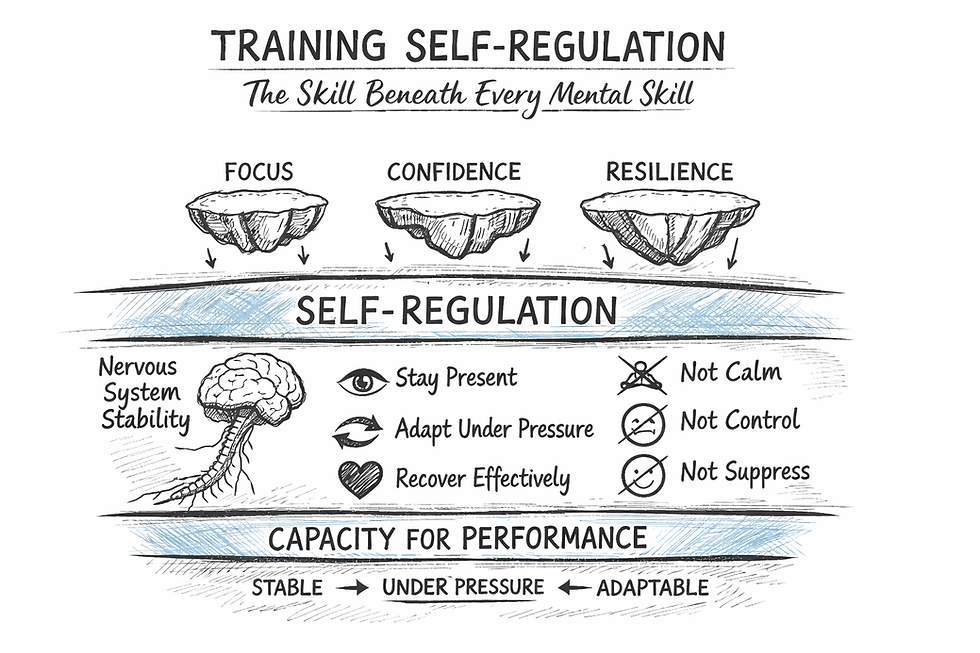Unclench Your Fist: Why Surrender is the Secret Weapon of High Performers
- Kate Allgood
- Mar 19, 2024
- 3 min read
In today's world, we're bombarded with messages about taking charge, maximizing efficiency, and achieving peak performance. But what if the key to unlocking your true potential lies not in forceful control, but in a surprising counterpoint: surrender?
As a mental performance coach, I work with athletes, and other high-achievers. One of the biggest roadblocks I see is the constant struggle to control every outcome. We cling to the illusion that if we just plan enough, strategize perfectly, and white-knuckle our way through every situation, success is guaranteed.
The truth is, this white-knuckled approach backfires. It creates performance anxiety, clouds our judgment, and zaps our energy. It's like trying to swim upstream against a powerful current. You might make some headway, but it's exhausting and ultimately unsustainable.
Here's the secret weapon: surrender.
Now, surrender doesn't mean giving up or becoming passive. It's about acknowledging the limitations of control and choosing to focus on what you can influence – your own thoughts, actions, and reactions in the present moment.
Think of it like surfing. You can't control the waves, but you can learn to read them, adjust your position on the board, and ride with the flow. The more present you are, the more you can adapt and navigate the unexpected turns.

Here's how surrendering to the present moment can boost your performance:
Reduced performance Anxiety: When you let go of the need to control everything, you free yourself from the constant worry about what might go wrong. This frees up mental space for focus and creativity.
Increased Trust: By surrendering to the present moment, you begin to trust your own abilities and intuition. You tap into a wellspring of calm confidence that allows you to perform at your best.
Enhanced Adaptability: The world is full of surprises. When you're not rigidly attached to a specific outcome, you can adapt to changing circumstances with grace and agility.
Enhanced Focus: When our minds are cluttered with "what-ifs" and past mistakes, it's hard to be fully present. By letting go, we create mental space for laser-sharp focus on the task at hand. Imagine entering a competition with unwavering clarity, instead of a mind caught in a whirlwind of worries.
So, how do you cultivate this art of surrender? Here are two simple practices:
Mindfulness Meditation: Taking a few minutes each day to simply observe your thoughts and feelings without judgment can anchor you in the present moment.
Focus on the Breath: When you feel yourself getting caught up in the future or past, take a few deep breaths. Feel your body rise and fall with each inhale and exhale. This simple act can bring you back to center.
Surrendering to the present moment isn't about becoming passive. It's about being fully engaged with what is, right now. It's about trusting yourself and your abilities. It's about letting go of the need to control everything and embracing the flow of life.
Give it a try. You might be surprised at the power of letting go.
To your success,
Kate
About: Kate Allgood is educated in the field of applied sport psychology. She holds two Masters degrees in psychology where she graduated with distinction. After a very successful hockey career, she has spent the past 14 years working one on one with high school, college, Olympic, and professional athletes to help them with their mindset, mental performance and mental skills training. Kate has also been a consultant for professional teams, including the Anaheim Ducks primary minor league affiliate the San Diego Gulls, to help the team and players develop their mental game. It is important to note that while Kate has graduate school training in applied sport psychology and general psychology, she does not diagnose or treat clinical disorders, and is not a licensed psychologist.
**The information provided is not to dispense medical advice or prescribe the use of any technique, either directly or indirectly, as a form of treatment for physical, emotional, or medical problems, without the advice of a physician. The information provided is only to offer information of a general nature to help you in your quest for high performance. If you know or suspect you have a health problem, it is recommended you seek your physician's advice.



Comments